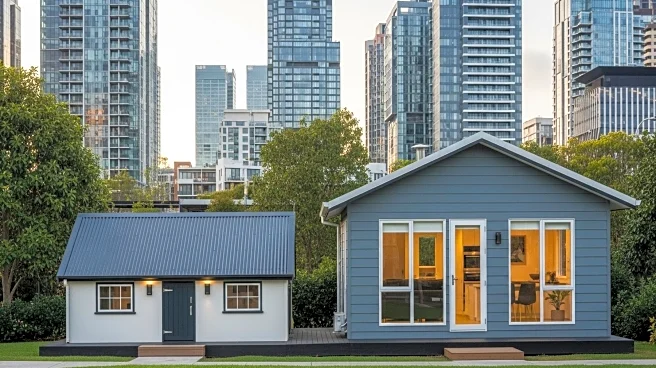What is the story about?
What's Happening?
Chicago aldermen have reached a compromise to legalize coach houses, basement units, and 'granny flats' in the city, while limiting their spread in single-family neighborhoods. Aldermen Marty Quinn and Bennett Lawson have been negotiating for nearly a year over the 'additional dwelling unit' legislation. The compromise allows some homeowners to add units in their buildings and over garages, but restricts the ease of building these apartments in single-family home areas. Quinn's version of the ordinance, which is likely to pass in the City Council, allows aldermen to block units in their wards, arguing that unrestricted building would strain resources and alter neighborhood character. Lawson's proposal, backed by Mayor Brandon Johnson, aimed to allow units without aldermanic input citywide, but faced opposition. The compromise includes a requirement for construction to use workers from apprenticeship programs, gaining support from organized labor.
Why It's Important?
The legalization of coach houses and granny flats in Chicago is significant as it addresses the city's housing crisis by potentially increasing affordable housing options. The compromise reflects a balance between expanding housing availability and preserving neighborhood character. It also highlights the influence of organized labor in city politics, as the requirement for union-affiliated apprenticeship programs in construction was a key factor in reaching the agreement. This development could set a precedent for other cities grappling with similar housing issues, showcasing the complexities of urban planning and the need for stakeholder collaboration.
What's Next?
The City Council is expected to pass the compromise ordinance, which will allow aldermen in single-family areas to opt in or continue to ban additional units. The ordinance's impact will be monitored, with potential adjustments based on community feedback. Mayor Johnson aims to build more affordable units, with a target of 100,000, and this policy is a step towards that goal. The Zoning Committee has also approved a separate plan for a 22,000-seat Chicago Fire soccer stadium, indicating ongoing development in the city.
Beyond the Headlines
The compromise on coach houses and granny flats legalization in Chicago may have broader implications for urban development and housing policy. It raises questions about the role of local government in balancing growth with community interests and the influence of labor unions in shaping policy. The requirement for union-affiliated apprenticeship programs could impact construction costs and timelines, affecting the speed at which new housing units are built. This development may also influence other cities considering similar housing solutions, highlighting the importance of stakeholder engagement and negotiation in urban planning.

















